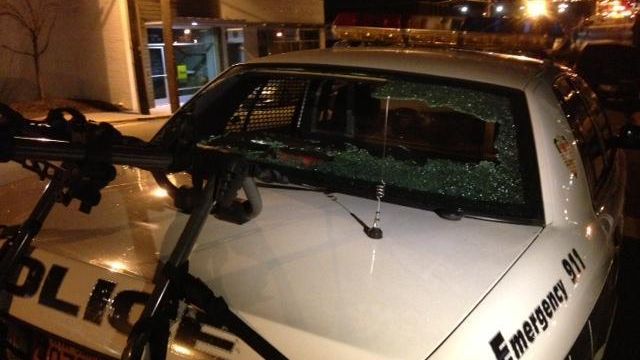Violent marches lead Durham to change protest rules
Following three violent marches over the death of a teen in police custody, the Durham City Council on Friday adopted new rules for demonstrations in the city.
Posted — Updated"We wanted to make sure that, for future activities such as we've had before, that everybody has a clear understanding of what is expected of them," Mayor Bill Bell said. "There shouldn't be any question about what's expected of a person that marches, and we expect them to follow that."
The rules bar protesters from Durham Police Department property, including parking lots and grass around buildings. They also prohibit people from wearing masks, hoods or otherwise concealing their identities during a demonstration and from using fireworks or other pyrotechnics during a march.
Future protests also must be held during daylight hours and only after organizers have obtained a city permit.
"We just thought it was more appropriate to have it during the day," Bell said. "It seems that night provides a different type of atmosphere, and we wanted to avoid that."
People upset over the death of Jesus "Chuy" Huerta have clashed with Durham police three times in recent weeks. A police substation and patrol cars have been vandalized, and police have said officers had bottles and rocks thrown at them by masked demonstrators.
"The vandalism was not necessary – the damage to public property was not necessary – and we don't expect that to happen in the future," Bell said.
Huerta, 17, died shortly after his Nov. 19 arrest on a trespassing charge. Authorities have said he died of a self-inflicted gunshot wound to the face while he was in the back of a patrol car with his hands cuffed behind his back.
Huerta's family has questioned the Durham Police Department's explanation of his death and has called for a federal investigation of possible civil rights violations.
Bell said the council tried to limit the rules so as not to infringe anyone's First Amendment rights, adding that he believes the rules still allow people to express concerns they may have.
• Credits
Copyright 2024 by Capitol Broadcasting Company. All rights reserved. This material may not be published, broadcast, rewritten or redistributed.






